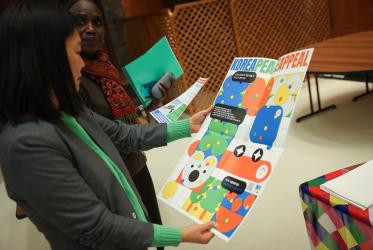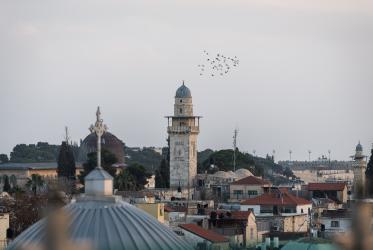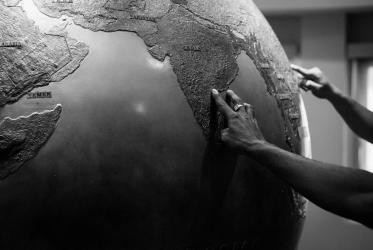Displaying 1 - 20 of 180
Ecumenical Forum for Korea finds hope amidst challenges for peace
07 December 2023
WCC marks 75th commemoration of “Al-Nakba”
16 May 2023
WCC offers input to the UN New Agenda for Peace
13 April 2023
Upcoming webinar will focus on COVID-19 and caste discrimination
24 February 2022
WCC honoured with Geneva Engage Award
01 February 2022
Dr Abuom reflects on women of faith as healers of creation
05 October 2021


















